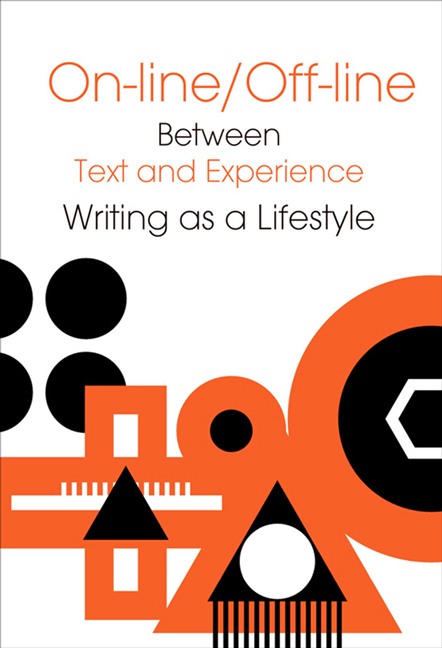Book contents
- Frontmatter
- Contents
- Editors’ Introduction
- ON-LINE/ OFF-LINE
- Literate Existence in the Digital Space. Contemporary Traces of Identity
- Text, Writing, School in Anthropological Perspective
- The Practice of Writing Fan Fiction: A Fan Fiction Writer's Tutorial
- I Write. You Write. They Write. The Literary Works of Fandom as a Factor in Integrating the Community
- Approaches Towards Shame in Contemporary Polish Literature
- People You May Know: Homosexual Men's Identity in the Time of Social Networking Services
- Contemporary Polish Essays: In Search of the Aura of Paintings and Photographs
- The Hybrid Work of Art as Experience
- Reincarnations of the Word: Media, Genres, Practices
- LITERATURE AND CONVERGENCE
Contemporary Polish Essays: In Search of the Aura of Paintings and Photographs
from ON-LINE/ OFF-LINE
Published online by Cambridge University Press: 12 January 2018
- Frontmatter
- Contents
- Editors’ Introduction
- ON-LINE/ OFF-LINE
- Literate Existence in the Digital Space. Contemporary Traces of Identity
- Text, Writing, School in Anthropological Perspective
- The Practice of Writing Fan Fiction: A Fan Fiction Writer's Tutorial
- I Write. You Write. They Write. The Literary Works of Fandom as a Factor in Integrating the Community
- Approaches Towards Shame in Contemporary Polish Literature
- People You May Know: Homosexual Men's Identity in the Time of Social Networking Services
- Contemporary Polish Essays: In Search of the Aura of Paintings and Photographs
- The Hybrid Work of Art as Experience
- Reincarnations of the Word: Media, Genres, Practices
- LITERATURE AND CONVERGENCE
Summary
Abstract
When an essay, as a specific form of writing, is conventionally compared to travel, the latter is understood not only as a model of translocation but also as a literary genre. The parallel between essays and travel writings identifies their numerous common elements in text, for instance a movement between the topics, the observer's visible distance, an intel-lectual journey (the last term was introduced by Walter Pater in his pioneer reflections on the essay in 1893).The listed similarities encourage the writer of this article to formulate a rudimentary statement: both real and literary travel and the act of writing an essay are usually undertaken to discover a thing worth one's attention and interest; a thing that, even if commonly known, should be, firstly, experienced, and secondly, depicted in a way that would cast new light on it.
Key words: literary genre, essay, act of writing, experience, real and literary travel
Theodor W. Adorno in his work entitled The Essay as Form describes the specific happiness of unconstrained essayistic exploration: “the object of essay is the new as something genuinely new, as something not translat-able back into the staleness of already existing forms”, and later adds, that essay “becomes a compelling construction that does not want to copy the object, but to reconstruct it out of its conceptual membra disjecta” (Adorno 1984: 169). As a consequence, in a model form of a travel essay (which is a distinctive subgenre of essay writings) the described search of novelty should be certainly taken into account. Supposedly, what seems the most attractive for authors of travel essays are the excursions to unknown re-gions intriguingly labelled “ubi leones”. Experiment, risk, originality, indi-vidual experience – all those elements are repeated in various preliminary definitions of an unstable, protean essayistic form (e.g. Bense 2012, Atkins 2005, Sendyka 2006).
Considering contemporary Polish travel essays, an important ques-tion might be asked: how to discover this individual voice and the nov-elty of the essay's object when the traditional place of an artistic pilgrim-age comes to be the destination of a real journey, described subsequently in the text.
- Type
- Chapter
- Information
- On-line/Off-lineBetween Text and Experience: Writing as a Lifestyle, pp. 115 - 132Publisher: Jagiellonian University PressPrint publication year: 2016

